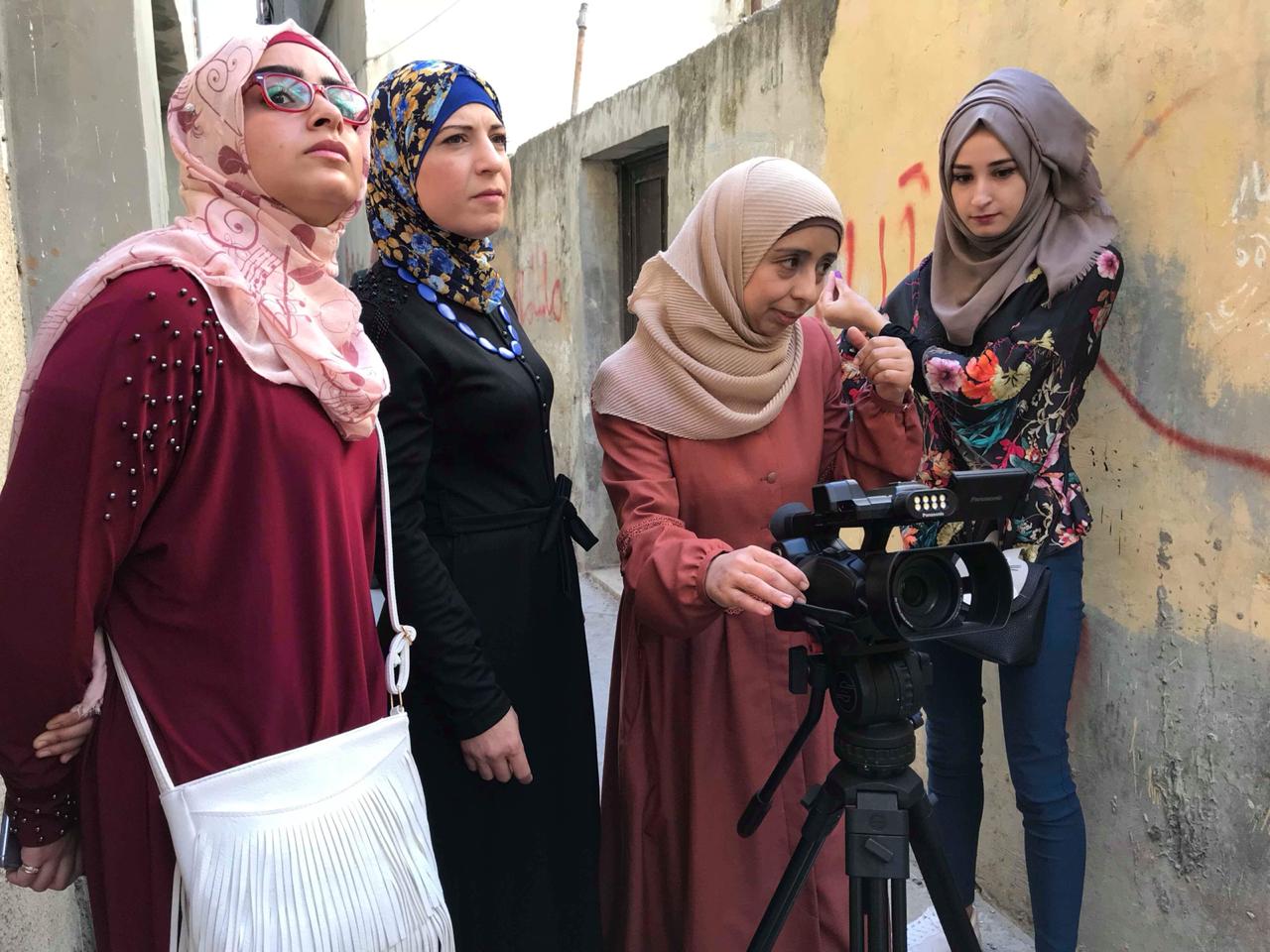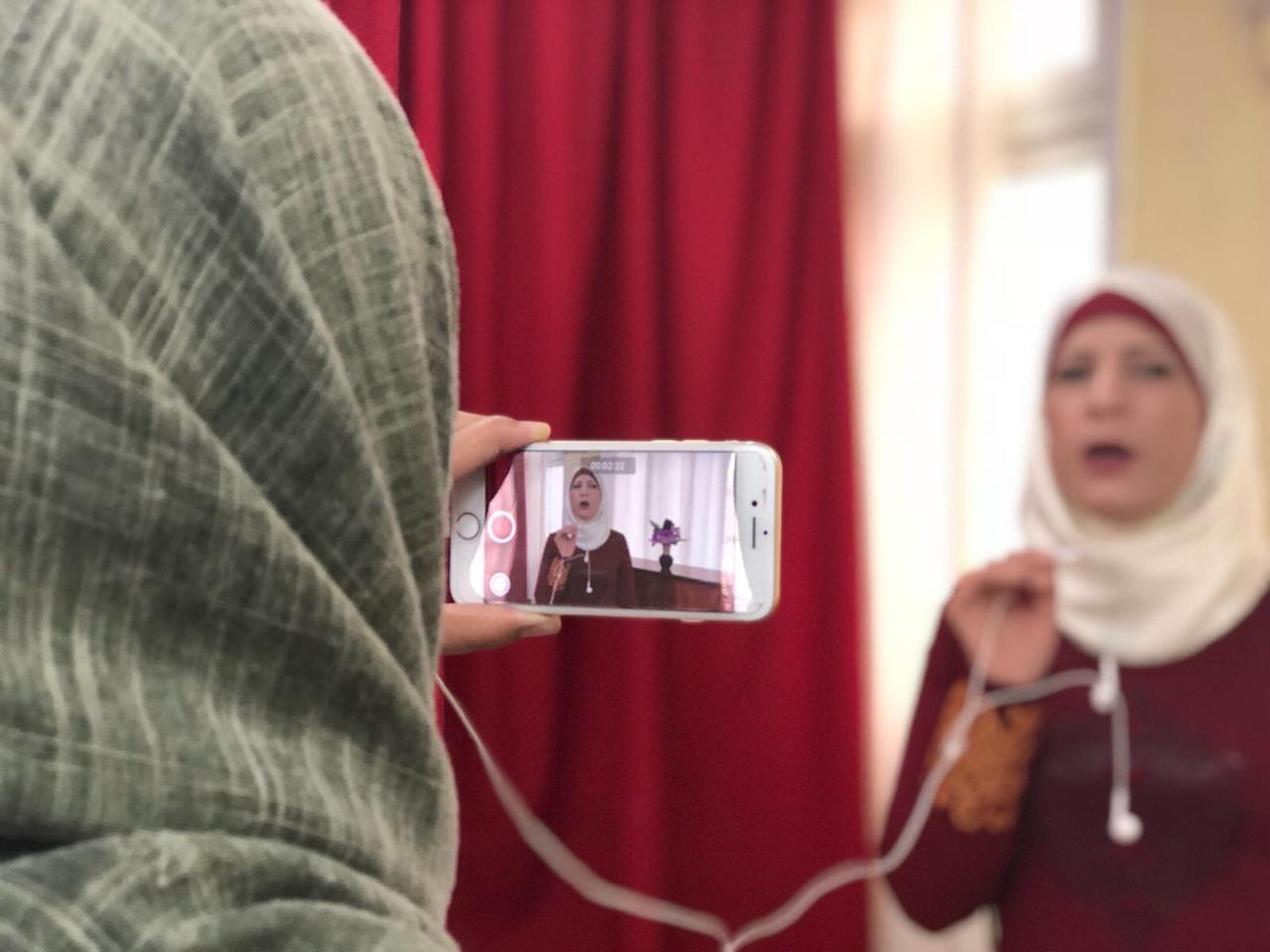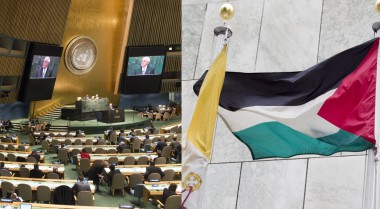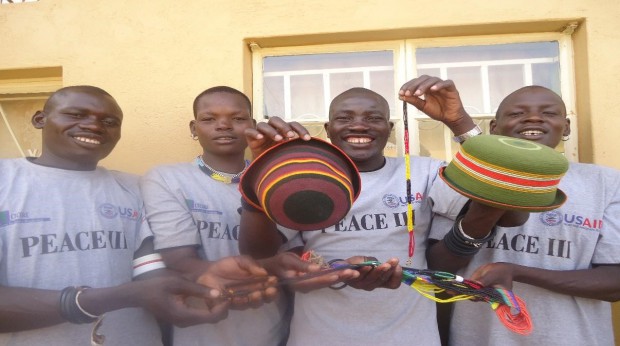‘If There Were Justice, There Would Be Peace!’: an interview with peacebuilder Lucy Nusseibeh
Today is Peace Day. For this special day, we spoke to peacebuilder Lucy Nusseibeh, who has been striving for peace in the Occupied Palestinian Territories for decades. As the founder and director of Middle East Nonviolence and Democracy (MEND), Lucy has initiated many peacebuilding projects with women and youth directly affected by the conflict. Lucy has been living in the Occupied Palestinian Territories since 1978, and founded MEND in 1998.
How did you personally come to peacebuilding?
Well, I was married to a Palestinian, living in Jerusalem under the Israeli occupation, and I was teaching at Birzeit University in the West Bank. It was impossible to live there and not wanting to do something to try to make things better. The occupation was everywhere. We were often stopped on our way to teaching, unable to get to classes on time. There was a lot of hope, but things weren't going quite right and it seemed important to become more engaged. Teaching in the university was a lot of fun, but it didn't feel as if it was doing enough.
Twenty years after MEND was established, how would you say the climate has changed?
In 1998, there was still a lot of hope, a lot of unity. There were different political factions, but people really believed that Palestine could become a model democratic state in the region. And now, there is real despair and social fragmentation. People have become individualistic. They have no hope, either at the individual or political level. People don't even know what to hope for, which is part of the problem. The belief in the international community and that international law would be implemented has pretty much evaporated. That's one of the few avenues that people still pursue, but there's little hope even there. So, it's very different.
And what kind of impact does that have on your work at MEND?
I think it makes it harder. It makes it, if you like, radical even just to hope. To try to encourage hope becomes a form of action. People in the Palestinian community have used non-violence ever since the very beginning of the struggle. But, the awareness of the power that non-violence could have to shift the perception of the Palestinians, and to shift the dynamics of the struggle, was never fully appreciated by the bulk of the population. Although, the leadership definitely appreciated it. Now there's much more awareness of it.
This year, the UN has declared the theme of International Day of Peace as ‘the Right to Peace'. What does that mean on the ground? Do you feel that there is a big disparity between what the international community constructs and contributes, and the reality on the ground?
What the international community does is important. It matters. But on the ground, there is very little faith in anything of this kind. People have long ago given up talking about peace or believing that it is something that is going to come soon. Although, of course, anyone will tell you that they want peace. That they want a normal life with a feeling of safety, feeling that they can send their children to school and be sure they'll come back. Feeling that they can build a life for themselves, as people do elsewhere. And this is what peace would mean. But, the right to it? Rights are important. It's good to emphasise it. And ideally, it would be something that the Palestinian community also starts to work with. People aren't doing it at the moment, because there are so many things going on that are going badly. But, it is an opportunity that is being offered, which I hope we can take up.
"What the international community does is important. It matters. But on the ground, there is very little faith in anything of this kind."
What role do youth and women empowerment play in peacebuilding? Is that something that you focus on?
 It is something that we focussed on from the very start as something absolutely crucial. Not just because it is the future, but because it is also the present. Also, because it is important to be inclusive. One of our first projects was one for girls in schools, called ‘Choose a Future', to encourage girls to stay in schools. Through that we also introduced a methodology which we've worked with a great deal since, called ‘Participatory Video'. Participants are trained both to film and be filmed. They become aware of their own image, through filming each other and themselves in discussions on different topics. So, it raises a lot of awareness, including self-awareness, which then empowers them to articulate better their own views and needs. This is one of the ways we've found really effective working with youth and women.
It is something that we focussed on from the very start as something absolutely crucial. Not just because it is the future, but because it is also the present. Also, because it is important to be inclusive. One of our first projects was one for girls in schools, called ‘Choose a Future', to encourage girls to stay in schools. Through that we also introduced a methodology which we've worked with a great deal since, called ‘Participatory Video'. Participants are trained both to film and be filmed. They become aware of their own image, through filming each other and themselves in discussions on different topics. So, it raises a lot of awareness, including self-awareness, which then empowers them to articulate better their own views and needs. This is one of the ways we've found really effective working with youth and women.
Most recently, we have been doing some projects, teaching youth also to work with mobile phones. Teaching them how to express themselves through their phones, so that they can get messages out to their peers around the world.
You have initiated many projects with your organisation MEND. So, what are some of the most effective ways of working within peacebuilding?
It is always a problem that there are limited numbers that one can reach. So, probably the most effective ways, as I reflect on it, are the ways that reach more people. It is been great working with schools, for instance. We've developed curricula, such as, for school counsellors, which was adopted by the Ministry of Education. Another effective tool is using media in different ways. Whether it is bumper stickers or radio soap operas, which reached all sorts of people who are not the converted, who are not going to be thinking about non-violence. Through something like a love story or a hero who changes from being violent to being non-violent, you can also bring in ideas around gender, human rights, and the Right to Peace if you like. People start to discuss.
 Again, the participatory video and mobile phone projects work, because of youth expressing themselves and reaching out to other youth. Part of the problem, again in Palestine, is the stereotype of violent Palestinians. A lot of the challenge is humanisation and you humanise when you make videos about human problems. We have a very short film, called ‘The Unhappy Birthday', where a girl is expecting her friends to come and one-by-one they cancel, because they can't get through the Israeli checkpoint to reach her. And this has a powerful, emotional effect, just because it humanises the situation. I think that this is really the way forward to peace. To refuse the demonisation, which brings with it all the polarisation. It takes people out of this competition for victimhood and allows people to connect as human beings, which is the way to peace.
Again, the participatory video and mobile phone projects work, because of youth expressing themselves and reaching out to other youth. Part of the problem, again in Palestine, is the stereotype of violent Palestinians. A lot of the challenge is humanisation and you humanise when you make videos about human problems. We have a very short film, called ‘The Unhappy Birthday', where a girl is expecting her friends to come and one-by-one they cancel, because they can't get through the Israeli checkpoint to reach her. And this has a powerful, emotional effect, just because it humanises the situation. I think that this is really the way forward to peace. To refuse the demonisation, which brings with it all the polarisation. It takes people out of this competition for victimhood and allows people to connect as human beings, which is the way to peace.
Which area might you recommend other organisations and individuals working within the Palestinian context to focus on to make positive contributions?
At the moment, there are so many terrible problems in the Middle East that the Palestinian problem doesn't necessarily seem as bad as it used to seem. But it is actually in terrible shape. What is happening is that it is being closed off the agenda completely, with President Trump's declaration about Jerusalem as well as stopping the funding for refugees. These things enable those who think they can get away with it to say there is no longer any Palestinian problem. And I think that is a huge danger. It is a problem. There is colossal injustice, there is no human security, no safety for Palestinians. The people in Gaza… it is indescribable how they have to try to cobble their lives together. It is not a life that they have there. It is not fit for any human. No one should have to live like how they live there. Even though it is not like Syria, or Iraq, or Libya, it is a very long-standing injustice that, ideally, the international community and international law would address.
One of the first things would be to encourage respect for international law, because that is in fact being undermined by what is happening. So that is a first step, and then to get real justice. If there were justice, there would be peace. There is not a natural hostility. There is a much more natural coexistence, a peaceful coexistence in the region.
As a member of GPPAC, how do you feel that GPPAC is contributing to the work of MEND and to peacebuilding in the Occupied Palestinian Territories?
I feel that GPPAC really helps by giving a global platform for the work that we do. For instance, promoting our films that raise awareness about the issues in the context of other people who really care about building peace. I feel GPPAC gives a tremendously important platform for this. As well as encouragement, as one of the difficulties with any small organisation is getting one's voice out, and GPPAC does this, so thank you very much!

